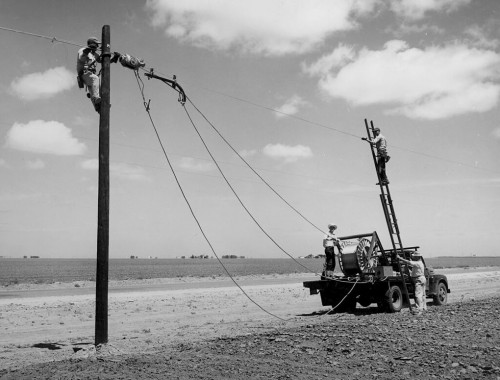WEBINAR: Electrification in Buildings and Communities
A successful energy transition will require rapid, effective, resilient, and equitable electrification. While researchers are working out the technical details of how to make this happen, policymakers are trying to foster a financial and regulatory environment in which it can take place. This webinar focused on both of these efforts and their interactions with each other. Leading experts highlighted cutting-edge research on the benefits of, impacts from, and barriers to resilient electrification, especially in low-income and rural communities. The discussion addressed initial findings from ongoing research projects as well as potential connections between research and policymaking in the electrification space.
View a recording of the event here.
Read a blog post that summarizes key takeways from the event here.
Speakers included:
- Dr. Ana Dyreson is Assistant Professor of Mechanical Engineering at Michigan Technological University. Dr. Dyreson leads the Great Lakes Energy Group, where she uses energy analysis and grid-scale modeling to study the performance of renewable technologies and the operation of future electric power systems, with a focus on the impacts of climate change on those systems in the U.S. Great Lakes region. Her research links power plant-level thermodynamic models, climate models, hydrology models, and electricity grid operation models to understand how weather and climate change impact future power systems, both as individual components (i.e. snow shedding off of solar panels) and as a whole (balancing hourly grid operations during a heat wave). Dr. Dyreson holds a Ph.D. in Mechanical Engineering from the University of Wisconsin–Madison and an M.S. in Mechanical Engineering from Northern Arizona University.
- Dr. Sergio Castellanos is Assistant Professor in Civil, Architectural, and Environmental Engineering at the University of Texas at Austin. As a professor, he studies and helps co-create sustainability solutions for communities using tools and strategies at the intersection of energy, equity, and data science. His lab conducts projects all over the world, with an emphasis on energy transitions in North and Latin America. Prior to UT Austin, Dr. Castellanos worked as a postdoctoral scholar and research professional at UC Berkeley’s Energy and Resources Group and the California Institute for Energy and the Environment with Prof. Dan Kammen, and Dr. Carl Blumstein, respectively. Dr. Castellanos holds a Ph.D. and an M.Sc. in Mechanical Engineering from the Massachusetts Institute of Technology. - Michigan Technological University
- Dr. Paulo Cesar Tabares-Velasco is Associate Professor of Mechanical Engineering at Colorado School of Mines. Dr. Tabares-Velasco came to Colorado School of Mines after being a research engineer at the National Renewable Energy Laboratory (NREL) where he developed the simulation environment for NREL’s Smart Power Lab. He was a developer of NREL building simulation/optimization tool BEopt. Prior to that he was a postdoctoral researcher at NREL where he led NREL technical research on phase change materials. He also validated and improved the finite-difference/phase change material (PCM) model in EnergyPlus and analyzed pre-cooling strategies in residential buildings to reduce electric peak demand. Dr. Tabares-Velasco holds a Ph.D. in Architectural Engineering from Penn State University and an M.Sc. in Mechanical Engineering from Colorado State University.
- Dr. Henry C. McKoy serves as Senior Advisor to the Undersecretary for Science and Innovation at the U.S. Department of Energy. Prior to that he served as the Director of the Office of State and Community Energy Programs. Dr. McKoy is a seasoned professional in business, community and economic development, policy, government, finance, energy, philanthropy, and the academic worlds. Prior to the Department of Energy he served on the faculty at North Carolina Central University School of Business where he led the entrepreneurship program, with additional appointments at Duke, the University of North Carolina at Chapel Hill, and Harvard. He holds a Ph.D. from UNC-Chapel Hill’s Department of City and Regional Planning and an M.S. from Duke's Nicholas School of the Environment.
- Dr. Chris Holt (moderator) is an Economic Fellow at the Institute for Policy Integrity. Dr. Holt earned his Ph.D. in Agricultural and Resource Economics from the University of Maryland. His research focuses on environmental economics, market design, and industrial organization. In particular, his recent work examines the interaction of market power and environmental policy in the Texas wholesale electricity market.
This webinar was part of a series highlighting environmental and energy research projects funded by the Alfred P. Sloan Foundation. Stay tuned for upcoming events!

